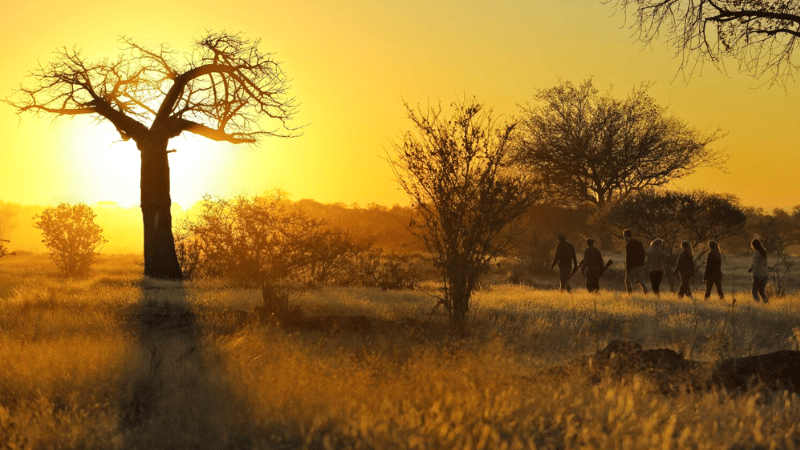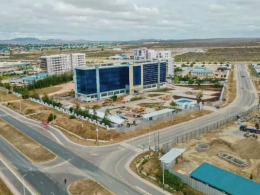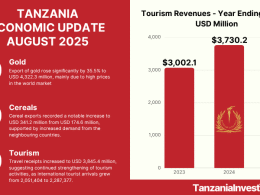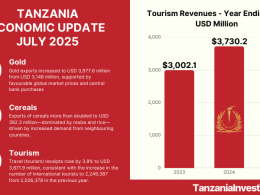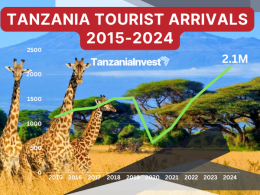The World Bank’s Board of Executive Directors has approved a Management Report and Recommendation, including a Management Action Plan (MAP), to support livelihoods and water resource management for communities living in and around Ruaha National Park (RUNAPA).
The MAP is part of the Tanzania Resilient Natural Resource Management for Tourism and Growth (REGROW) Project, which aimed to improve the management of natural resources and tourism assets in southern Tanzania while increasing access to alternative livelihoods for local communities.
The REGROW Project was financed through a $150 million credit from the International Development Association (IDA), the World Bank’s fund for the world’s poorest countries, and implemented by the Tanzanian Ministry of Natural Resources and Tourism (MNRT) and the Tanzania National Parks Authority (TANAPA).
However, the project faced significant challenges, including allegations of forced evictions, excessive use of force, and property seizures by TANAPA.
In July 2023, two individuals from the project area submitted a Request for Inspection to the World Bank’s Inspection Panel, an independent mechanism for addressing grievances related to World Bank-funded projects.
The complaint alleged that TANAPA had threatened to evict residents, used excessive force, and seized cattle. A second request in May 2024 provided additional information, including claims of imminent evictions and escalating property seizures.
In response, the World Bank suspended disbursements under the project in April 2024 due to the Government of Tanzania’s non-compliance with resettlement-related obligations.
The Government later clarified that it had no intention of resettling communities from RUNAPA in the foreseeable future. However, the project was ultimately canceled by the Government in November 2024.
The Inspection Panel’s investigation found that the project failed to adequately identify and address risks related to potential resettlement and park access restrictions. Safeguards to mitigate these risks were not applied in a timely manner, leading to adverse impacts on affected communities.
Anna Bjerde, World Bank Managing Director of Operations, acknowledged the shortcomings in the project’s preparation and supervision. She stated, “We regret that the REGROW project preparation and supervision did not sufficiently account for project risks, resulting in inadequate mitigation measures to address adverse impacts. The Management Action Plan will support community livelihood activities and social services, including legal aid and grievance redress mechanisms, to ensure affected individuals can voice their concerns safely and confidentially. We remain committed to ongoing and open engagement with all those impacted by the project, as well as other key stakeholders. Finally, we are taking on board the important lessons from this case to improve how we prepare and supervise projects, monitor and manage risks, and support sustainable and inclusive conservation moving forward.”
The MAP includes two new community-driven operations to support livelihoods, climate resilience, and social services for vulnerable communities.
The World Bank consulted extensively with affected communities before approving the MAP, and the Government of Tanzania has committed to its implementation.
Inspection Panel Chair Ibrahim Pam emphasized the importance of learning from the challenges faced during the project’s implementation. He stated, “This investigation yields critical lessons for the Bank’s approach to supporting conservation and other projects that require physical resettlement and restrict access to legally designated parks, especially where unauthorized physical and economic presence is prohibited, and the Project is implemented through a law enforcement agency. Management has acknowledged its compliance failures and has undertaken to implement actions approved by the Executive Directors of the Bank to redress the harms caused, which the Panel’s investigation found. The Inspection Panel pays tribute to the courage of the Requesters in approaching the Panel with the harms that they suffered.”
The World Bank has also committed to reporting annually on the progress of the MAP’s implementation, ensuring transparency and accountability.





